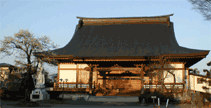  |
Lesson 16: It's not red.
Click here for the kana version.
|
This lesson is a continuation of Lesson 14. Recall that Lesson 14 dealt with 'i' adjectives. First, we need to start off with a bit about one of the differences between English and Japanese. In English adjectives usually stay in their affirmative form and 'not' is added when changing to the negative. In Japanese, however, i adjectives all have an affirmative and a negative form. Thus, 'black' and 'not black' are both adjectives. In order to change an i adjective
from affirmative to negative form, change the last i to kunai. |
|
|
Example: akai |
red |
|
|
|
| Examples: Neko wa omokunai desu. |
The cat is not heavy. |
| Kuruma wa karukunai desu. | The car is not light. |
| Watashi no kasa wa akakunai desu. | My umbrella is not red. |
| Kono hon wa atarashikunai desu. | This book is not new. |
| These adjectives can also be used to modify nouns. |
|
|
Examples: akakunai hon |
a book that's not red |
| omokunai enpitsu | a pencil that's not heavy |
| atarashikunai kuruma | a car that's not new |
|
|
|
|
Examples: Akakunai ringo o tabetai. |
I want to eat an apple that's not red. |
| Omokunai enpitsu o tsukaitai. | I want to use a pencil that's not heavy |
| Atarashikunai kuruma wa aoi desu. | The car that's not new is blue. |
|
Lesson 16 Vocabulary: omoi -kunai akakunai tsukaimasu |
heavy negative i adjective suffix use |